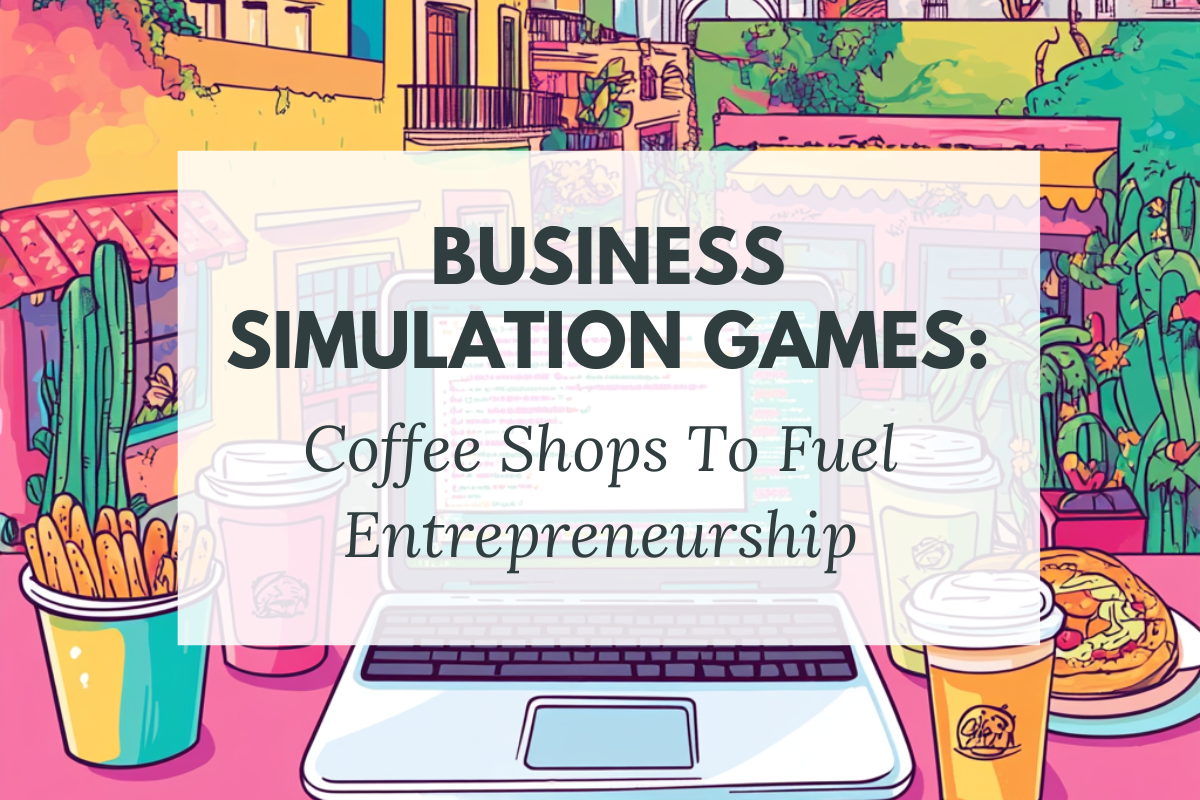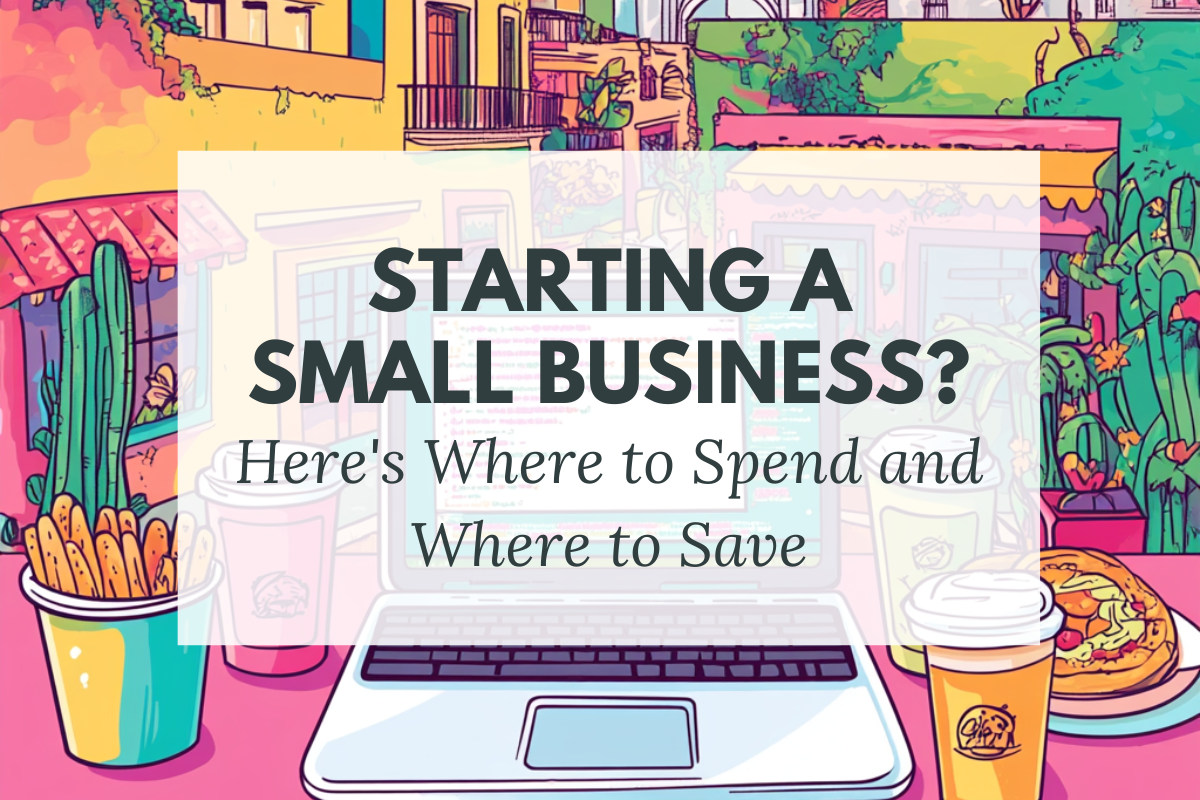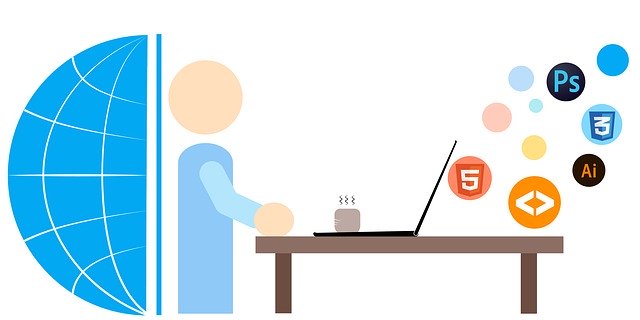
Unleashing Your Inner Entrepreneur: Can Business Simulation Games Play a Role?
Business simulation games are a surprisingly useful tool for aspiring entrepreneurs. On the surface, they seem like a fun and innocent way to fuel your entrepreneurial spirit. But the impact goes deeper, and the benefits are many. They offer a realistic depiction of the complex world of business. So entrepreneurs can use these interactive platforms to experience business thrills and challenges and do so in a safe environment where your real money is not at stake.
A game could ignite passion, ideas, and insights for a budding entrepreneur, paving the way for real-world success. It’s beneficial for the growing number of young adults (and even teens) who dream of running a business but lack years of experience that can prove an asset when you launch a new enterprise.
Coffee Shops: Virtual Games in Action
Coffee shops are a good example of a virtual simulation game with practical use for entrepreneurs. I recently tried out a free Coffee Shop simulation game run by the team at Mortgage Calculator (the game was even safe enough for me to pass the reigns over to my daughter and let her have a try!). In the game, the simulation introduces you to real-world business challenges in a few subtle ways. Here are a few examples:
Inventory Management
If you launch any kind of shop or store (online or the traditional bricks-and-mortar), expect inventory management to appear high on your task list. Inventory management is the process of ordering, storing, and using your business stock. It includes raw materials, components, and finished products. And will come with challenges like storage and warehousing, packing, and shipping.
Good inventory management is about managing levels to prevent overstocking and shortages—a balance, in other words. Poor inventory levels can disrupt your business operations and lead to lost sales. It also greatly impacts your business profitability, pushing up storage costs or lowering customer satisfaction.
The coffee shop game was a neat introduction to the world of inventory management. Each day, you order your stock for your coffee cart. Order too little, and you’ll find your product sold out halfway through the day, leading to potential lost sales. But order too much, and the milk will spoil, eating into your profits. It takes a few (virtual) days of running the simulation to find the perfect balance.
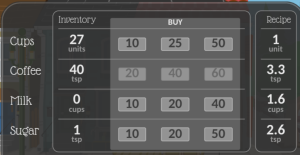

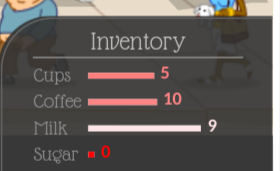
Tuning Into What the Customer Wants
When you run a business, your success lies in knowing what your customer wants. This goes beyond knowing your market. It extends to specifics about the product your customer needs most and the price they will pay.
By actively listening to your customer, you can adjust your offering to meet their expectations. The result? Higher customer satisfaction and more loyalty. Effective customer demand analysis will help you monitor feedback and forecast trends.
The coffee simulation game provides a useful example of this in action. You’ll get real-time feedback on what potential customers think about your product. Weak coffee? You need to add some extra caffeine tomorrow to improve your brand’s reputation. Too much sugar? You’ll need to adjust that recipe before it affects your sales! It’s a helpful reminder that a happy customer will drive record profits, but failing to listen to a customer will leave you with dwindling sales.
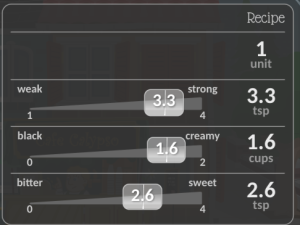
The Impact of External Pressures
You can create the perfect business model, but you’ll still find your entrepreneurial path shaped by factors outside your control. That’s often a lesson most business owners discover the hard way. It might be a new government regulation, a recession, or your commercial landlord putting up prices because of inflation. Either way, it shows the importance of having a flexible business model that can adjust to outside conditions.
The coffee shop game has a neat way of illustrating this point in the simulation. It’s the weather! This shopping cart is available on the sidewalk, and before the start of the day, you’ll get a weather forecast. A scorching hot day can make it difficult to sell a hot coffee. Perhaps it’s time to lower those prices.
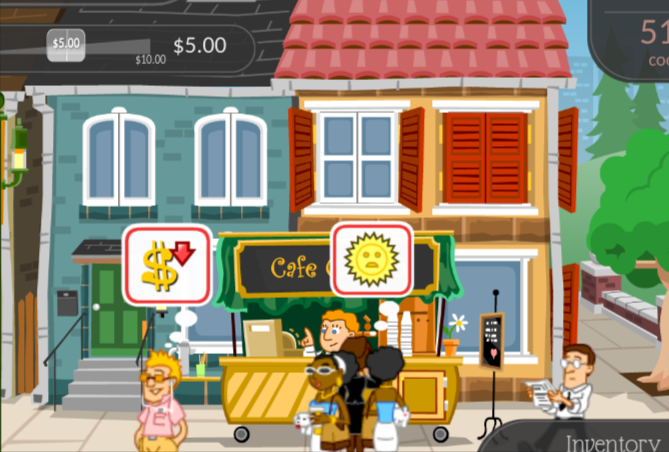
Pricing Strategies and Price Sensitivity
Pricing is possibly one of the biggest challenges a new business owner faces. The most tempting pricing strategy when starting a business is to start low. That makes sense because you want to get customers through the door. But low prices are often a bad idea, eating into your profits and limiting your business growth, plus giving you a reputation as a cheap brand when you want to be seen as premium. But on the other end of the scale, you have prices that are so high people will walk past your door and not even look at what you have to offer.
The Coffee Shop simulation does an effective way of illustrating this. Potential customers will show a thought icon to let you know what they think of your prices. It’s a lesson in the importance of having a real-life pricing model that you can adjust to maximize profits and keep those customers returning.
Business Simulation Games: The Fun Way to Learn About Startups
Business simulation games are a unique and risk-free way to learn the ropes of running a business. Plus, it’s a fun alternative to reading some try textbooks about stock levels and price sensitivity! Why not try it today? For those dreaming about a new business venture, it’s a helpful stepping stone and will give you some pointers when writing your business plan.
Pin this Post!


